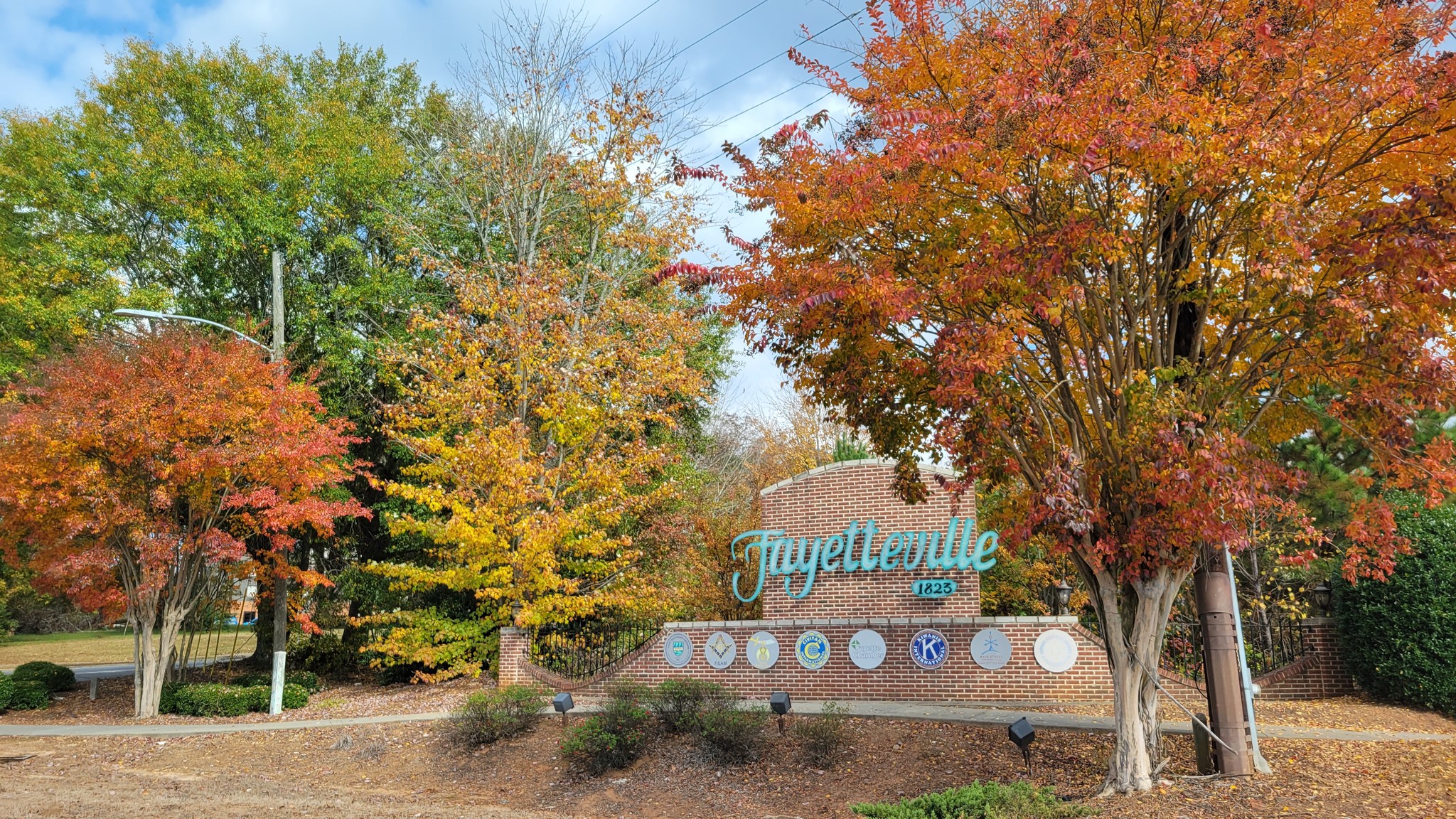Fayetteville is steeped in history, culture, and pride as the oldest seat of Fayette County. Established in 1823, this town is an important crossroads where businesses, schools, stores, churches, and mechanics all fit comfortably into its vibrant scene in 19th-century Georgia. Built on land ceded by Creek Indians, the town is named for the Marquis de Lafayette of Revolutionary War fame and proudly houses a clock tower built in 1888, serving as a symbol of perseverance in hard work through a difficult period for the state’s citizens.
Fayetteville is a proud town, established on March 28, 1823, and located twenty miles south of Atlanta. It proudly serves as the seat of Fayette County, which was created in 1821 from land ceded to the state by the Creek Indians. The town and county are both named for the Marquis de Lafayette, the Frenchman who joined forces with George Washington during the American Revolution (1775-83). His important contributions to the war effort were acknowledged when he revisited Georgia in 1825.
19th Century Resilience
The town of Fayetteville stands as a testament to the resilience of 19th-century Georgia. Built in 1824, the historic courthouse is listed on the National Register of Historic Places and faces south towards the then-capital of Milledgeville. Topped with a clock tower in 1888, the building serves as a reminder of the hard work and dedication of the people who made it their home. Nestled on the banks of the Flint River, Fayetteville is a symbol of strength and fortitude for generations to come.
Businesses and homes lined the original town square, and five major routes made Fayetteville an important crossroads. The town was even home to Shiloh Baptist Church which eventually became First Baptist Church in Fayetteville. Not only this, but S.R. Minor launched the Fayetteville Advertiser, two schools, three stores, five barrooms, several mechanics, and a printing shop dotted the town. The Holliday-Dorsey-Fife House, a two-story Greek revival home that now houses a museum, was erected in 1855 by the uncle of Old West icon John Henry ”Doc” Holliday. Two years later, the home became the site of Fayetteville Academy. All these places are reminders of the proud citizens who worked hard to make Fayetteville what it is today.

Led by Morgan Harbin Looney, the academy was renamed Fayetteville Seminary and became a prominent educational institution in the area. Margaret Mitchell’s grandmother was one of its early pupils and Mitchell herself visited the graves of her great-grandfather’s family at the city’s cemetery during her research for her novel Gone With the Wind (1936). These ancestors formed the basis for Mitchell’s O’Hara clan, which has gone on to become a beloved symbol of resilience and renewal. Scarlett O’Hara attended the fictional Fayetteville Female Academy in the novel, shaped by stories Mitchell’s grandmother told.
On July 29, 1864, Union General Edward M. McCook led 3,600 cavalry to a triumphant victory against the Confederates at Fayetteville, capturing 400 of their troops and burning 500 wagons of supplies. Despite Confederate General Joseph Wheeler’s attempt to free the prisoners with his cavalry forces two days later, the Union soldiers remained victorious. To commemorate this event, a Confederate monument was erected on April 26, 1934, at the city’s courthouse. Today, Fayetteville continues to proudly honor its legacy as a historical site of battle and resilience.
Fayetteville witnessed a remarkable recovery in the late 19th century with the arrival of the Atlanta and Florida railroad lines in 1888. The Fayette County News opened shortly after, providing locals with news and information for over a century. Not long after, the introduction of gas lamps, electricity, and a public water system during the 1920s further bolstered the town’s infrastructure. Despite the Ku Klux Klan‘s white supremacist presence, African Americans returned to farm the land as sharecroppers, diminishing the group’s influence. However, a revived Klan reappeared in the area during the same decade, leading to a brief period of white violence and the disappearance of several Black farmers.
Economic Struggles in Fayetteville
Fayetteville’s economy was forever changed with the advent of the twentieth century when A. O. Blalock opened the Bank of Fayetteville and brought the area its first telephone. The city saw economic struggles in the 1925 drought, followed by the 1929 stock market crash which ushered in the Great Depression. Despite these hardships, corn remained a profitable commodity due to the bootlegging commerce in Atlanta. The most significant blow to Fayetteville’s fortunes came in 1939 with the removal of the railroad line. Though the population had peaked at 2,976 in 1920, it steadily declined until the 1980s before making a resurgence.
Today, Fayetteville is a hub of commerce and culture. Its economy is driven by retail, manufacturing, and wholesale trade industries, while its farmers still produce various crops. The city has proudly revitalized its downtown Main Street area, hosting multiple festivals each year such as the Fayetteville Bluegrass Blast, the Old Courthouse Art Show, the Main Street Festival, and the Christmas in Fayetteville festival.
The 2020 U.S. census reported that the city’s population had grown to 18,957 from the 2010 population of 15,945, a testament to its proximity to Atlanta and its booming economy.
Fayetteville is a town steeped in rich history, culture, and resilience. Its lively past has given it a unique atmosphere that visitors can enjoy today through its old courthouse, churches, businesses, schools, museums, and homes. Despite many challenges foisted on the town over time, Fayetteville continues to thrive as an influential hub of activity for locals and visitors alike. Its unique character serves as an example of what can be accomplished when individuals work together toward a common goal, one that will undoubtedly live on in the memory of those who appreciate its proud legacy.






